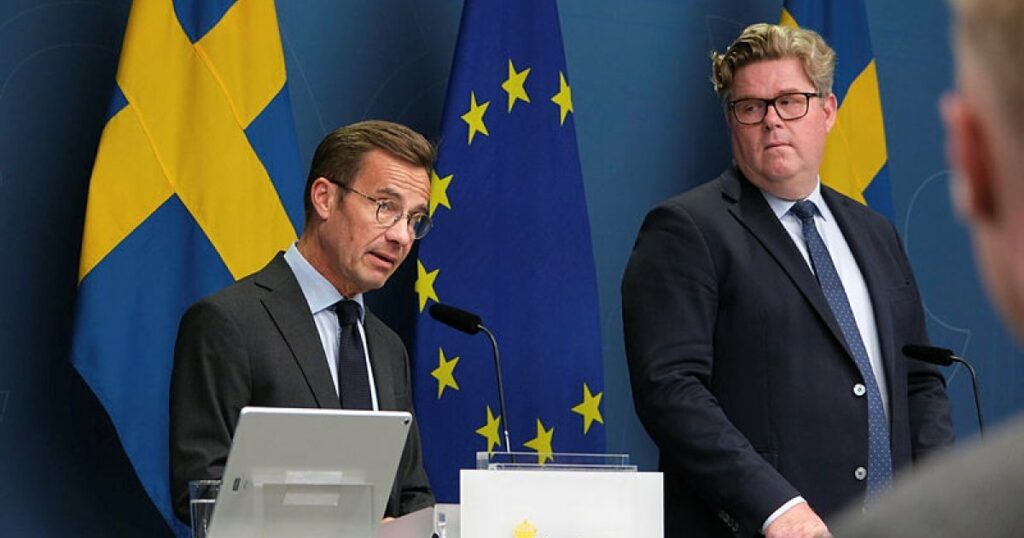Sweden and Denmark have recently made international headlines due to incidents of Quran desecrations. In the aftermath, there has been widespread condemnation, mass protest and boycotts, especially in the Islamic world, with the Swedish embassy in Baghdad getting stormed twice. Due to the events, Sweden’s Prime Minister Kristersson has described the ongoing incidents as “the most serious security policy situation since the Second World War”. The incidents have also had tangible political consequences, with Sweden’s complicated path to NATO membership being the most prominent case in point. Consequently, these burnings have been an acute political issue for Sweden and Denmark, with both countries trying to strike a balance between protecting the freedom of expression and demonstration and mitigating the international outcry.
Due to the events, Sweden’s Prime Minister Kristersson has described the ongoing incidents as “the most serious security policy situation since the Second World War”.
Incidents of religious texts being desecrated are not new in Scandinavia. However, Sweden’s pending NATO membership and international outcry have amplified the current situation. The latest wave of incidents involving Quran desecrations started on June 28th, when a Quran was burned outside the Iraqi embassy in Stockholm, Sweden; several more burnings followed the incident. On July 25th, burnings also took place in Copenhagen, Denmark. Both Sweden and Denmark have repealed their blasphemy laws in 1970 and 2017 respectively. Therefore a recent court ruling in Sweden, found police efforts to prevent further incidents to be in violation of the constitutionally protected freedom of assembly.
As the Quran is considered the literal word of God, any act of desecration against the religion’s most important symbol would be considered sacrilegious and blasphemous to Muslims. That is why the recent Quran desecrations have caused widespread condemnation and protest in the Islamic world, media in the region, and the wider international community, and dealt an unprecedented blow to Sweden and Denmark’s international reputation in the Islamic world.
In part, this highly controversial desecration is driven by domestic political developments in Sweden and Denmark. Among the main perpetrators behind the recent Quran desecrations have been individuals and organizations connected to the far-right. These groups often hold Islamophobic views and use Quran desecrations as a tool to criticize Islam and the Muslim community. Right-wing extremist activities rose following the 2015 European migration crisis that resulted in a substantial increase of Muslim residents in Sweden and Denmark. The migration crisis also fueled political tensions. The Sweden Democrats, a party described as Islamophobic with roots in fascism, has seen a sharp rise in its popularity; it is now the second largest party in the Swedish Parliament.
Facing international outrage, both Sweden and Denmark are taking steps to handle the political consequences of Quran desecrations–albeit differently. In Sweden, the government has strongly condemned the burnings and the Swedish Parliamentary Committee on Foreign Affairs held an emergency meeting on the issue. The Swedish opposition has also urged the government to take steps to stop the ongoing incidents of Quran desecrations. Sweden’s unified response can be attributed to its complicated road to NATO membership. Its main hurdle to joining the alliance has been Türkiye’s opposition, which has strongly condemned the Quran desecrations. Although an agreement was struck on July 10, Türkiye has yet to ratify Sweden’s NATO membership until its parliament reconvenes in the fall. There are also growing concerns in Sweden about the threat of terrorism due to the Quran desecrations, which have led the government to boost its border controls. Due to this tense situation, reports have emerged about the government considering changes to current legislation to stop the Quran desecrations, something a majority of Swedes support in recent polling.
Denmark too is taking steps to handle the Quran desecrations, but unlike in Sweden, the issue is more polarized. Denmark’s Foreign Minister Lars Lokke Rasmussen condemned the most recent Quran burning, but emphasized these acts are not against the law. The Danish Police Intelligence Service assessed that the recent incidents have also increased the threat of terrorism in Denmark. In the interest of national security, the Danish government is therefore investigating the possibility of banning Quran desecrations outside embassies. However, unlike in Sweden, the Danish opposition is protesting these government’s plans. The issue could therefore be heading for a referendum.
Without any changes to current legislation to address the issue of religious texts being desecrated, similar incidents are likely to continue happening. The recent Quran desecrations have seriously hit Sweden’s and Denmark’s international reputation, but their responses are different. Sweden’s more unified reaction can be seen against the backdrop of its security and political environment, including its pending NATO membership, compared to Denmark, where the issue is more polarized. The two countries have to, however, live with the serious hit to their reputation in the Islamic world, which might in the future affect their cooperation with Muslim-majority countries on issues such as immigration, security, and counter-terrorism.
Source link : https://www.wilsoncenter.org/article/why-sweden-and-denmark-react-differently-quran-desecrations
Author :
Publish date : 2023-08-09 03:00:00
Copyright for syndicated content belongs to the linked Source.
